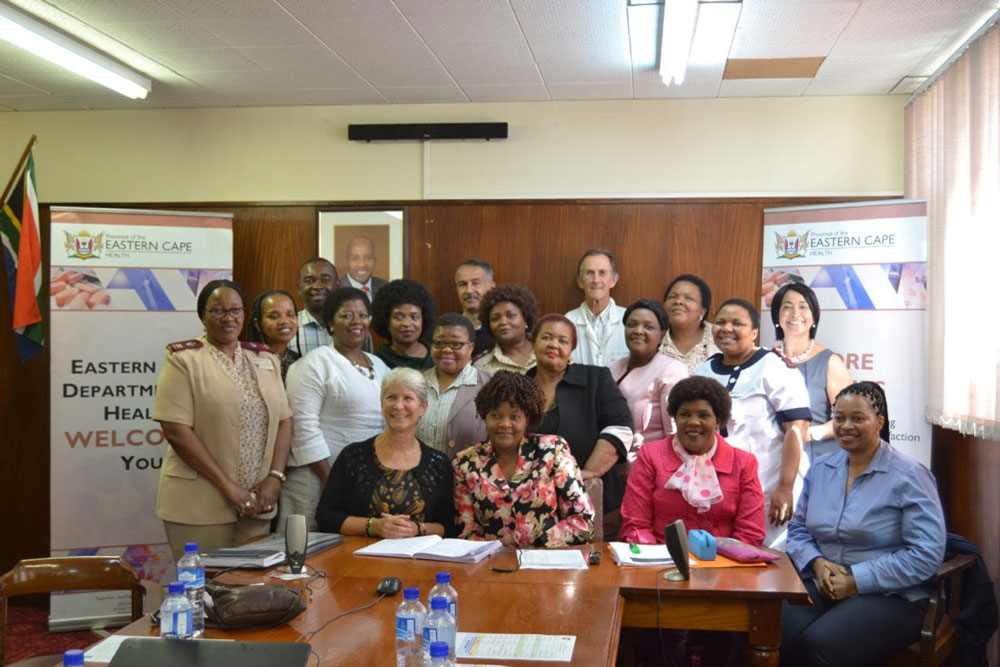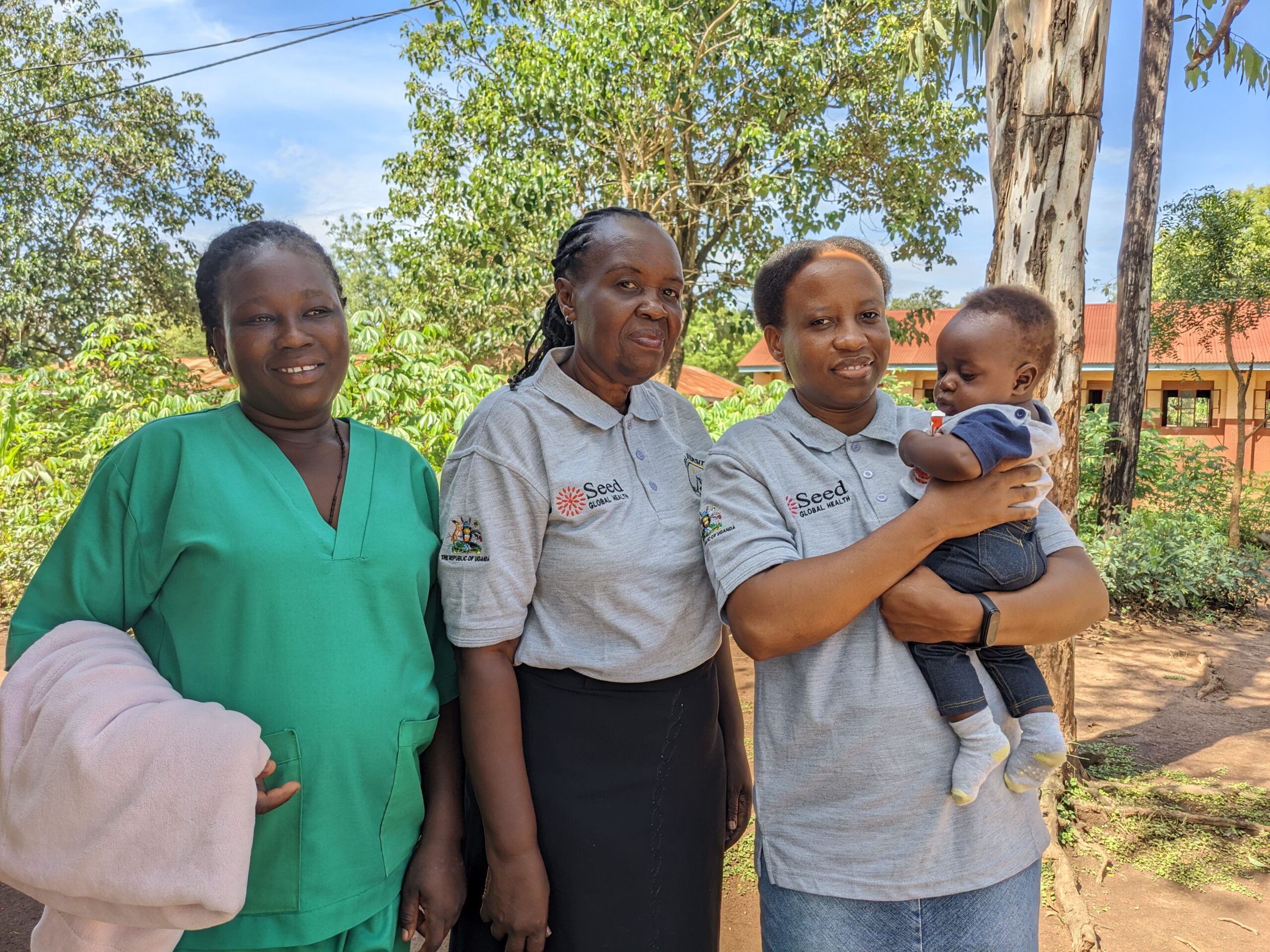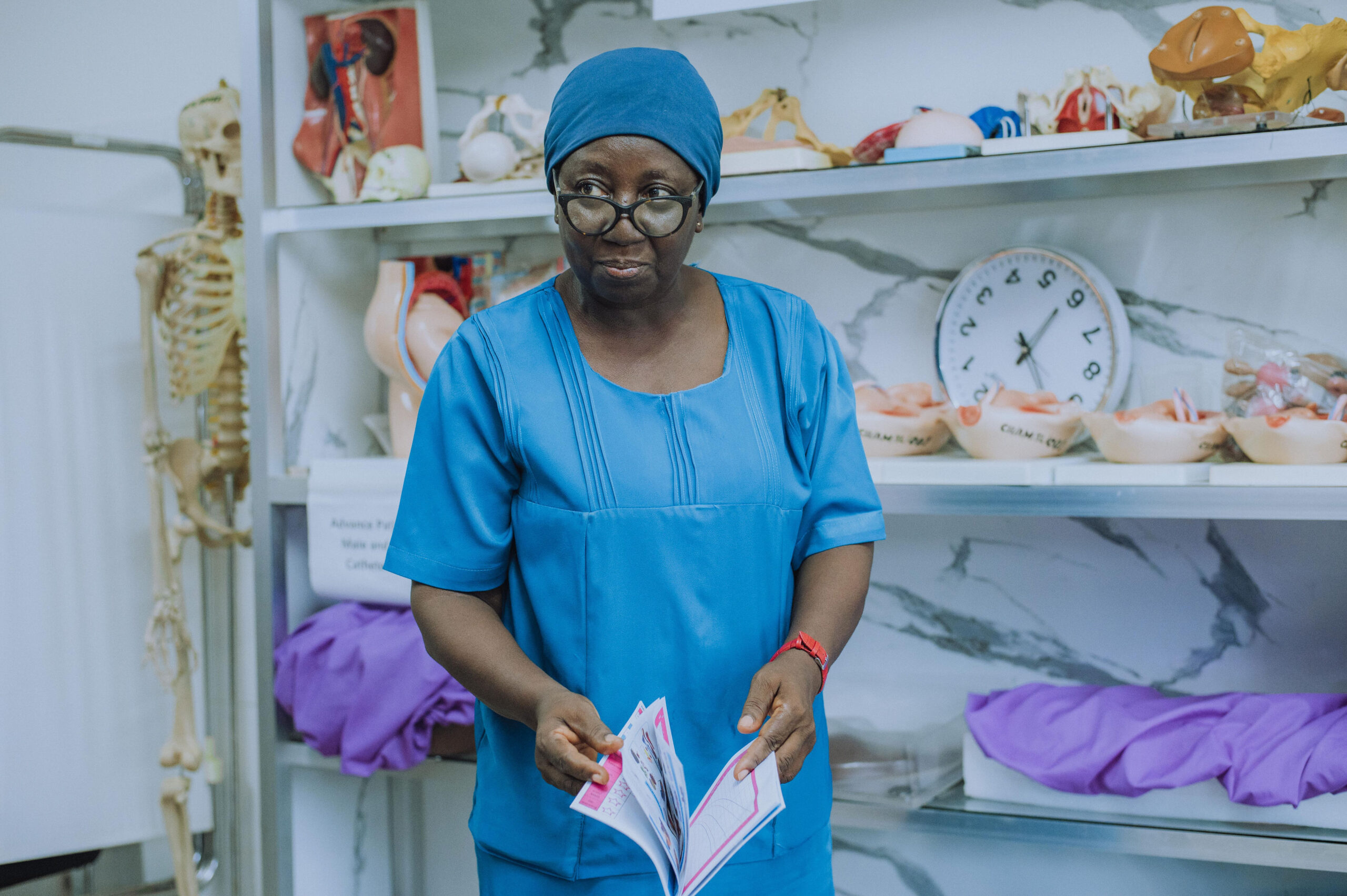Advancing a Midwifery Model of Care to Enhance Maternal and Child Health Outcomes in Malawi
While Malawi has made great strides in reducing both maternal and child mortality, there remains a great need to build the capacity of health workers to further accelerate improvements in outcomes of mothers, newborns, and children. To help with this, Seed Midwife Educator Linda Robinson collaborated with Ursula Kafulafula, a former dean at Kamuzu College of Nursing, University of Malawi, to advance a midwifery model of care in the country.
We spoke to Linda to learn more about the project that she and Ursula are working on to create a sustainable midwifery-led maternity ward that would model the type of care women should get during childbirth.
Please tell us a little bit about yourself—what inspired you to become a midwife?
When I graduated from nursing school, I intended to focus on public health. I went to the Peace Corps right out of nursing school and was based in the northern part of Malawi where I worked with midwives. Watching how they functioned and how they cared for women, I thought to myself, “That’s what I want to do.” I knew then if I wanted to work in global health, that I would be much more effective as a midwife.
My first child was born in Malawi. I was attended to by an obstetrician instead of the midwives who I trusted. I didn’t have any problems, but it wasn’t a very good experience. I realized that this is what happens to women at home [in the U.S.] too. After I went through that, I thought, “I am going back to midwifery school to help change things for women in our country too.”
What is it that appealed to you about the way the Malawian midwives functioned?
They were professional and well-respected independent practitioners. They were incredibly skilled at caring for women. They used very few resources and their outcomes were good. It was during a time when there was so much intervention in the delivery room here [in the U.S.]. The Malawian midwives were present the entire time a person was in labor. They were in tune with her. I felt like that’s what it’s supposed to be—we are supposed to be there. It was inspirational.
How did the midwife-led maternity ward idea come about?
The idea came out of a group of us talking about our frustrations with not being able to model to students what real midwifery care should be. It was Ursula who said that she had always wished she could get a midwife-led maternity ward established. We did our research and found a similar ward at Frere Hospital in South Africa.
We presented the idea at an Association of Malawian Midwives conference. The whole room exploded with excitement from other midwives who shared the same frustrations. This encouraged us and we applied to go on a benchmarking visit to Free Hospital where we realized that this goal was realistic.
“A lot of the poor care that is given in the country is not because health workers intend to harm women. It’s because they haven’t seen another model of care. There is overuse of technology, in some cases, and health workers have lost sight of the humanity of medicine.”

What type of experience should a midwife-led maternity ward offer?
There is a lot of warehousing of women that goes on. They sit in the hallways until they are about to deliver and then health workers pay attention to them. We should be able to triage a woman when she comes in, assess where she needs to be and the kind of care she should get. If she has risk factors, then she should be referred to the high-risk ward.
We want staff to adhere to the standards of respectful maternity care set by the International Confederation of Midwives. A woman should be supported through labor and delivery in a way that respects her dignity and empowers her. What I have said to students is, “You would cheer for a football player if you wanted him to win the game, so why aren’t cheering for her?” We want women to deliver their babies naturally when possible, but nobody is encouraging them and that’s going to make a huge difference. We need to listen to the women. They are scared, they are separated from their families, and they are in pain. They need to be reassured that they are doing okay.
“To have someone put their hand on a woman’s shoulder and say, “It’s ok. This is normal. I know it’s scary, but we are going to help you through this.” That would make a more positive impact than scolding her for crying.”
In what ways can midwifery-led wards, such as this one, advance a standard of respectful care for women during labor and birth?
Giving birth can be a really empowering experience or a completely devastating one. The sad reality is that across the globe, women are traumatized in the delivery ward verbally, psychologically, and physically.
We need to model respectful care so students can see it as a normal way to treat women. They will see how a woman responds when we talk to her or how her second stage is shorter if we are encouraging her to push. I want students to watch and say, “Look, this is how we treat women here and these are the outcomes— fewer C-sections and fewer cases of postpartum hemorrhage.” There is enough evidence showing that women and newborns benefit from this model. This is what we expect will happen. Students will pick up on the atmosphere and hopefully come to think of this model as the way it should be.
We can demonstrate to the midwives that they are capable of functioning independently. They will have better job satisfaction and confidence in their skills. We can show women that we know they deserve to be treated better. We can encourage them to advocate for themselves by demanding better treatment. Right now, this doesn’t exist. Women who have money go to private hospitals, but that’s not how it should be. You shouldn’t only be treated well when you have money. We as midwives, and as professionals who care for women during a vulnerable time, should promote this to all women—you deserve to be treated with respect.

